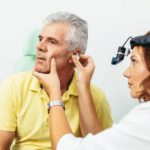Key Takeaways:
- Understanding the variety and purpose of clinical trials.
- Exploring the phases of clinical research development.
- Discussing the significance of participant diversity in trials.
- Addressing common concerns and myths about clinical trials.
Defining Clinical Trials and Their Importance
Clinical trials represent the cutting edge of medical science, playing a critical role in discovering and developing new treatments and medications. These research studies, carefully executed in phased approaches, assess the safety and effectiveness of novel medical strategies. One of the core objectives of clinical trials is to determine the benefits and risks of clinical trials, offering insights that go beyond the data acquired through lab research or animal studies. They provide a foundation of evidence that informs medical decisions and regulatory approvals, ultimately leading to the availability of new treatments to the general public. The trials also enable clinicians and researchers to compare the effectiveness of a new treatment against the current standard of care, ensuring the best possible outcomes for patients.
Preclinical Research: A Necessary Preface to Trials
Preclinical research serves as the critical bridge between laboratory discoveries and the initiation of human clinical trials. Scientists scrutinize potential treatments during this phase using computer models and laboratory tests. The promising results then move on to animal studies, where a treatment’s safety profile, pharmacodynamics, and pharmacokinetics are examined. These early experiments are essential — they inform future study design, providing a blueprint that might shape the therapies being trialed in humans. They are the stepping stones of the meticulous scientific process that safeguards the well-being of human trial participants.
The Four Phases of Clinical Trials: An Overview
Clinical trials are divided into four stages, each with a specific function in getting medicine from the lab to the drugstore shelf. Phase I trials are the inaugural stage, where safety is the primary focus, typically involving a small cohort of participants. The second phase emphasizes the treatment’s efficacy on a larger group, while Phase III trials are expanded further, encompassing vast demographics to assess the drug’s effectiveness across varied human populations. Upon successful completion of these stages, a drug may receive regulatory approval. Following this, Phase IV trials act as post-market surveillance to track any long-term effects or risks that might emerge. Each clinical trial phase is designed with stringent ethical guidelines to protect participants, yielding high-quality data that medical professionals rely on.
Interventional vs. Observational Trials
Clinical trials can typically be classified into two broad categories: interventional and observational. Participants are assigned specific treatments or interventions in interventional trials according to a research plan or protocol. These interventions may include medical products, such as drugs or devices, procedures, or modifications to participants’ behaviors, such as diet. Observational trials differ because researchers observe participants and measure outcomes without assigning specific interventions. These studies are beneficial for understanding diseases’ natural progression or therapy’s longer-term safety.
The Role of Placebos in Clinical Trials
In the domain of clinical trial design, placebos are used to establish a controlled environment where the actual efficacy of a drug can be measured against a neutral baseline. Using a placebo can reveal a treatment’s psychological versus pharmacological effects, accounting for any improvement that occurs simply from the belief that one is receiving treatment — known as the placebo effect. Despite some controversy over the ethics of using placebos, when utilized responsibly with informed consent, they remain a golden standard in randomized controlled trials, underpinning the discovery of credible and valid medical data.
Ensuring Diversity in Clinical Trials
In clinical trials, diversity is morally required and practically essential. Different populations may respond uniquely to specific interventions due to genetic, environmental, or lifestyle factors. A broad representation in the participant pool ensures that clinical trial results reflect how the treatment works across various demographics, which is crucial for the universal application of the findings. Efforts to increase diversity have ramped up in recent years, with institutions recognizing that inclusive research pools lead to more effective, safer healthcare outcomes for all.
Common Myths About Clinical Trials Debunked
Despite their crucial role in advancing medicine, clinical trials are sometimes shrouded in misconceptions. Some people erroneously believe they will receive a lower standard of care or be treated like a ‘guinea pig’ during a trial. However, ethical standards and regulatory safeguards are in place to prioritize participants’ rights, safety, and well-being. Another common myth is that all trials involve placebos, which is similar, mainly where established effective treatments exist. Outreach and education spearheaded by non-profit organizations are instrumental in dispelling these myths and empowering patients with accurate information to make informed choices about their involvement.
The Future of Clinical Trials: Technological Advancements
The future of clinical trials is bright, with advancements in technology influencing every aspect of their execution. The landscape is evolving rapidly from artificial intelligence improving patient selection and data analysis to wearable devices facilitating remote monitoring. Applying these technologies makes participation more accessible and less burdensome for patients while preserving the integrity and accuracy of trial data. These innovations also harbor the potential to bring down costs and reduce the time needed to bring treatments to market, ensuring that the benefits of scientific discoveries reach patients faster.
Also Read: The Complate Guide to DigitalNewsAlerts: Information Delivery In the Digital Age



